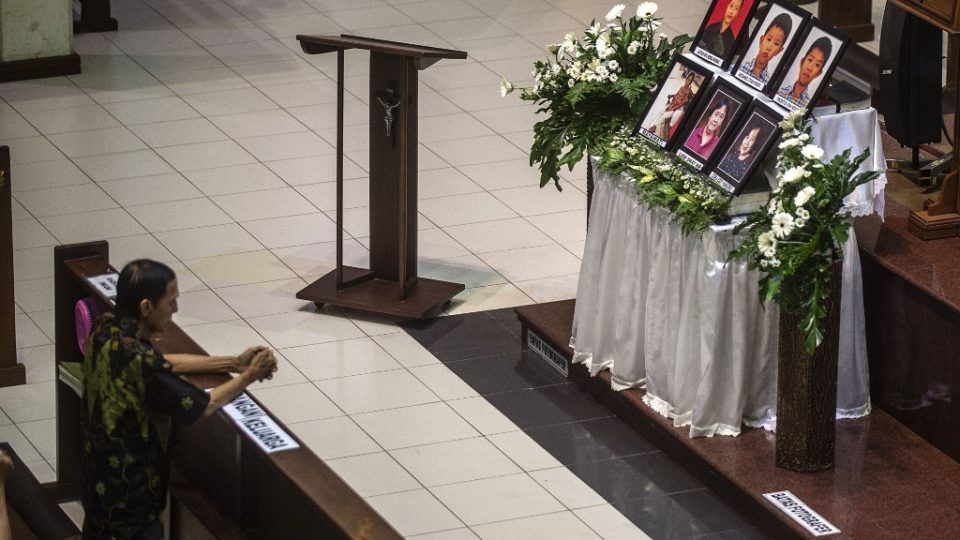An Indonesian church on Monday remembered the victims of suicide bombings carried out by an Islamic State-inspired family, one year on from the attacks that highlighted the extremist group’s global reach.
On May 13 last year, a family of six — including two girls aged nine and 12 — blew themselves up at the Santa Maria Catholic Church and two other churches in Surabaya during Sunday morning services, killing over a dozen congregants and wounding scores more.
The next day, a family who went to the same Koranic study group as the first attackers staged suicide bombings at a police station in Indonesia’s second-biggest city, wounding 10.
Several hundred people gathered at the Santa Maria church on Monday for a memorial prayer session and to hear survivor accounts of the bloodshed, which had raised fears that suicide bomber families could be a terrifying new modus operandi for IS.
“I have learned to move on and not be traumatised by the attacks because that’s what they (terrorists) want,” said Desmonda, a Christian woman who survived last year’s bombings.
IS claimed the Surabaya bombings and the families were linked to local extremist group Jamaah Ansharut Daulah (JAD), which supports IS.
Ines Andi, a hijab-wearing Muslim, also attended Monday’s one-year anniversary, which comes weeks after IS claimed similar suicide attacks on churches and hotels in Sri Lanka that killed more than 250.
“As a Surabayan who was born and raised here, I was shocked to hear about the bombings — more so because the perpetrators were Muslim,” the 27-year-old said.
“So I want to show my solidarity with the victims and hope that this will never happen again. People envy Indonesia for its diversity so we should preserve it,” she added.
It has been a long road to recovery for many Christians who make up about 10 percent of Indonesia’s 260 million citizens.
The Southeast Asian nation’s religious minorities, which also includes Hindus and Buddhists, have been targeted before and fears for their safety have grown as the voices of Islamic hardliners becomes more prominent in public life.
The coordinated Surabaya attacks were the deadliest in years for a country that has struggled with Islamist militancy since the 2002 Bali bombings killed over 200 people, including scores of tourists
“It’s hard to overcome the trauma even though it has been a year,” Rachmat Harjono Tengadi said after a service on Sunday at the Indonesian Christian Church.
The 56-year-old was struck by shrapnel after a mother and her two young daughters, dressed in body covering burqa veils, blew themselves up outside the church.
“Even now if I see somebody wearing a black burqa, my heart feels sick,” Tengadi said.
Tengadi’s church opted not to hold a special memorial on Monday’s anniversary over fears it could be painful for congregants.
“We thought it wasn’t a good memory so we’d better not hold any commemoration at all,” said church official Daniel Theophilus Hage.




